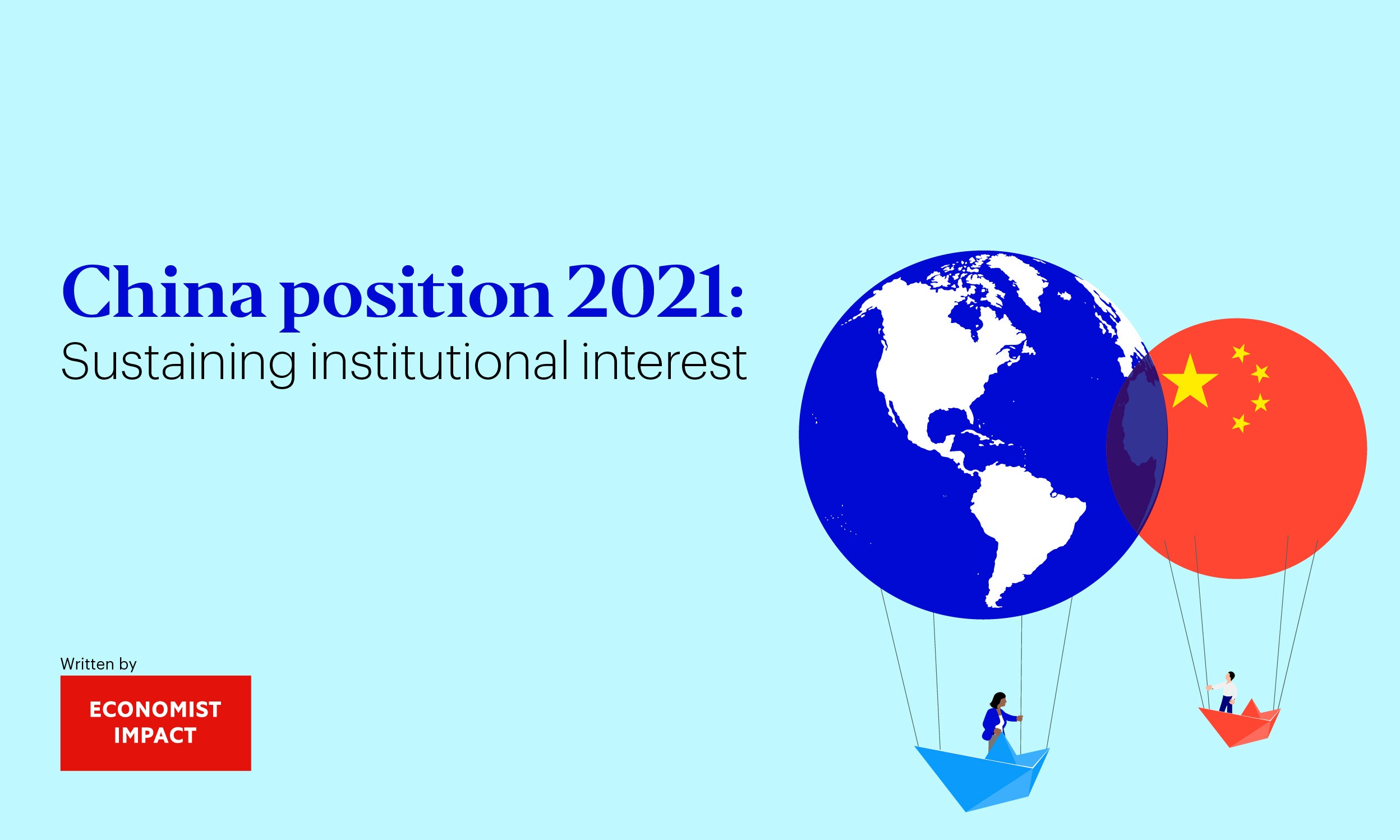
China Position 2021: Sustaining institutional interest
Invesco teamed up with Economist Impact to understand how institutional investors invest in China today.
About the research
China Position 2021
Sponsored by Invesco and written by Economist Impact, this report is a follow up to the 2019 China Position study. Despite headlines of tech and trade tensions or decoupling pressures, asset owners remain considerably invested in China. We explore why.
Key findings

Hope against headwinds
Over the next 12 months, 60% of respondents in the 2021 survey still expect better economic conditions in China relative to those globally. While that majority does represent a slip from three-quarters of respondents in 2019, it still demonstrates optimism despite a context of trade tensions, regulatory uncertainty and continued pandemic-related headwinds.
Source: The Economist Intelligence Unit; sample size: 200
Appetites up
Covid-19 has increased the risk appetite of over half of survey respondents regarding their China exposure. North American respondents were the most optimistic among the regions, 60% of respondents reported increased risk appetite as a result of the pandemic.
Source: The Economist Intelligence Unit; sample size: 200
China exposure is growing
Half of survey respondents say exposure to China increased over the past 12 months. Drivers include:
But challenges remain
Challenges to investment mainly centre on issues of trust and transparency, such as a lack of trust in corporate reporting, low regulatory transparency and opacity in China’s financial system for foreign investors.
Source: The Economist Intelligence Unit; sample size: 80
Technology themes dominate
Technology innovation and financial services remain the top investment sectors for survey respondents, consistent with the 2019 survey, with healthcare and domestic consumption themes also capturing interest. Likely given a boost from the pandemic, internet or online themes gained the most ground with investors since 2019.
Source: The Economist Intelligence Unit; sample size: 200
And ESG investing is on the rise
ESG investing among asset owners is having a growing influence on China exposures; a majority (62%) of survey respondents always or often adopt ESG investing with their China exposures and two-thirds say their China exposure grew due to ESG goals. Yet respondents still face challenges around ESG data transparency and availability.
Source: The Economist Intelligence Unit; sample size: 200
Investment risks
-
The value of investments and any income will fluctuate (this may partly be the result of exchange rate fluctuations) and investors may not get back the full amount invested.
When investing in less developed countries, you should be prepared to accept significantly large fluctuations in value.
Investment in certain securities listed in China can involve significant regulatory constraints that may affect liquidity and/or investment performance.




